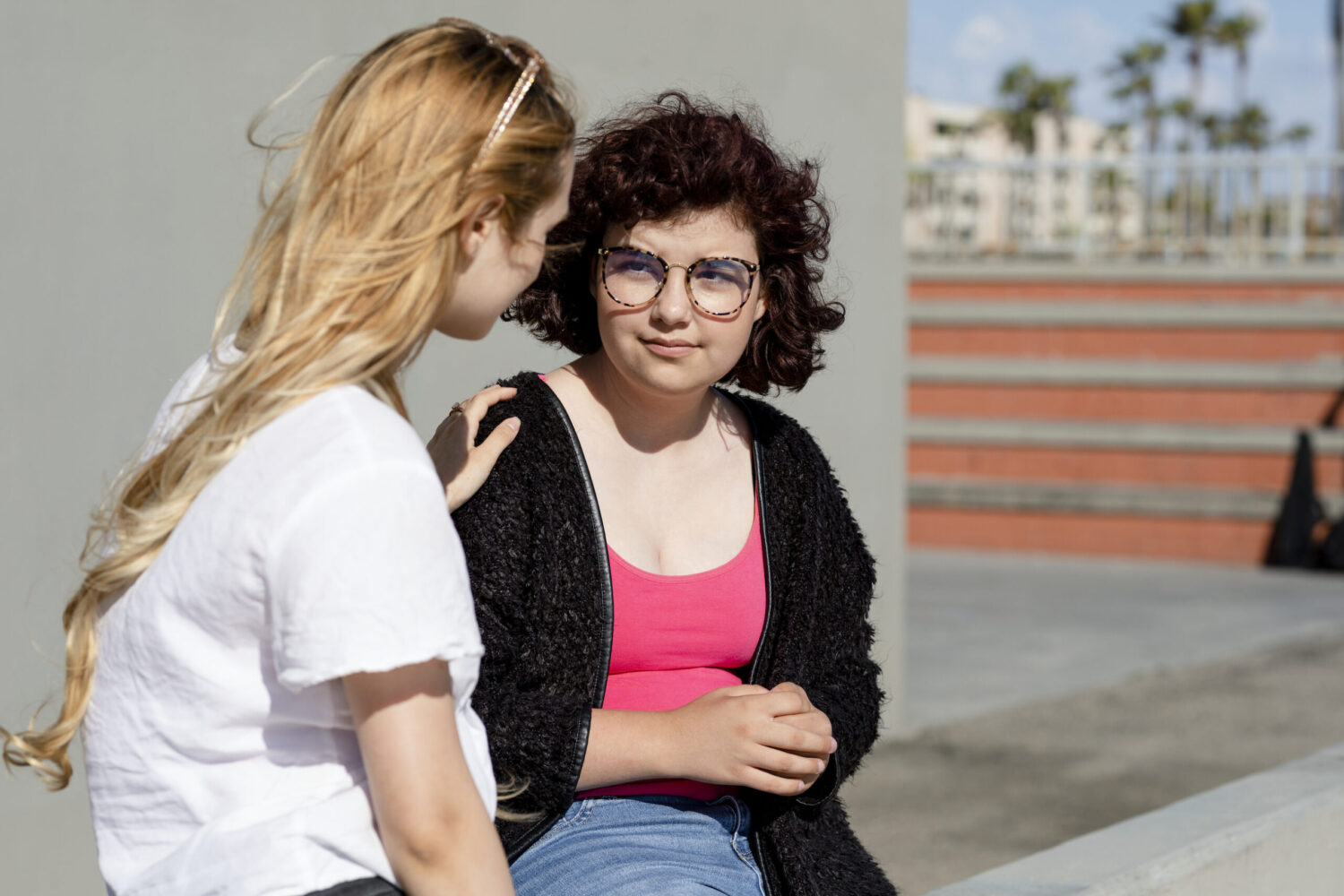
The Covid-19 pandemic has impacted individuals and families around the world, in all kinds of ways.
Here in the United States, lockdowns and remote learning certainly helped curb the spread of the virus when it was most needed.
But they also heightened the pandemic’s impact on youth mental health for many of our vulnerable young people.
COVID-19 Pandemic Impact on the Youth Mental Health Crisis
Rates of anxiety and depression in young people have been rising for a long time. From the mid-2000s to the early 2010s, for example, the CDC noted an increase of nearly 20 percent.1
Let’s look at the numbers to get a better idea of what’s really going on with youth mental health during Covid-19.
Just before the onset of the Covid-19 pandemic, estimates for children between the ages of 3 and 17 years old were as follows:2
- Approximately 5.8 million children (9.4 percent) had diagnosed anxiety in 2016-2019
- Approximately 2.7 million children (4.4 percent) had diagnosed depression in 2016-2019
But since March of 2020, young people in America have struggled as much as—if not more than—the rest of us. In the first year of the pandemic, researchers uncovered a 10 percent increase in the utilization of mental health services by kids aged 3 to 17 years.
Diagnoses ran the gamut—anxiety disorders topped the list, followed closely by psychosis, substance abuse, social challenges, and neurodevelopmental disorders.3
In any case, the data is clear: youth mental health during Covid-19 has become a full-fledged youth mental health crisis.
An Increase in Anxiety and Depression in Young Adults
It’s no secret that our younger years can be tough ones. As children grow, hormones, brain development, changing environments, and social situations all commonly cause stress.
And our world can be tricky to navigate. Children aren’t immune to the concerns of the adults around them; they’re easily and heavily affected by tension in their homes, fear at school, and a tumultuous political landscape—even if it doesn’t seem like they’re aware of what’s happening.
The Covid-19 pandemic has affected young people in all kinds of ways. On top of the normal stresses of growing up, they’ve had to weather the fear of illness, the loss of loved ones, changes to their normal routines, isolation from friends and mentors, missed social milestones like graduations or prom, and more.
Their learning timelines have been adjusted again and again, and many have struggled to keep up or access the educational resources and support they need.
And for those whose home environments are under-resourced or even abusive, quarantine and social distancing recommendations left them isolated and more vulnerable to trauma.
It’s little wonder a youth mental health crisis has arisen in the past few years.
Risk Factors and Symptoms of Anxiety and Depression in Young Adults
The risk factors for anxiety and depression in young adults remain generally the same across the board. They’re often things that impact their sense of safety and stability:
- Abuse or neglect in the home
- Poverty and/or exposure to food insecurity or homelessness
- Learning disabilities that make it difficult to meet expectations or keep up with their peers
- Bullying or being left out by peers
- Acute or chronic illness, pain, or fatigue
- Struggles with acceptance around sexuality or gender expression
Be on the lookout for these symptoms of anxiety and depression in young adults:
- Anger, irritability, sadness, or other behavior changes
- Interpersonal issues with friends or avoiding social interactions
- A loss of interest in activities, school, or hobbies that were once fun
- Substance use or other high-risk activities
- Low self-esteem, feelings of worthlessness, or heightened self-criticism
- Changes to sleep patterns—insomnia or nightmares, for example, as well as oversleeping
- Physical aches and pains (once medical reasons have been ruled out)
- Wanting to control things in their environment
Anxiety and depression can go hand-in-hand, and their symptoms can overlap. Young people may struggle to communicate their true feelings, so be on the lookout for even subtle symptoms.
How We Can Support Youth Mental Health During COVID-19
With young people back in school and most extracurricular activities back up and running, there’s far more support for youth mental health than there was at the beginning of the pandemic.
It’s critical that our schools and community hubs continue to provide access to supports for mental health and substance use disorders. Interventions at this level can be the stopgap needed to prevent kids from going down an even tougher road. Many schools need to do more….
But parents and caregivers are usually the ones to spend the most time with their young people—and so it’s vitally important that support is provided at home, too.
Here are three things you can do to help your young adults through this stressful time.
Provide structure for your child.
Life is busy, and quality time can be hard to come by. But the more structure and routine you can add to your and your child’s day, the better! Encourage quiet time for homework or reading, and be sure to carve out time for conversation.
Try to incorporate rituals like family meals or movies, board game nights, or special outings into at least every week. They don’t need to be huge gestures—just time together that you and your child can count on.
Model a healthy range of emotions.
Keep an open dialogue about your child’s experiences. Don’t pump them for details about every moment of their day—but make time and space regularly for them to share, when they choose to.
Getting your young person comfortable sharing the mundane will also make them more comfortable if they ever have something more serious to share with you, too.
Do your best to model a range of healthy emotions for your child. Help them to see that being sad or frustrated is normal and manageable. Being open about your own feelings (to an age-appropriate degree) will ultimately help your child learn to cope with theirs.
Don’t be afraid to seek out professional support.
Remember that there’s always help out there! Seeking therapy for your child is a great way to give them the time and space to process their feelings and emotions with a trained and impartial expert who can help assess the severity of any mental health challenges and recommend the best strategies for both you and your child to move forward.
Our Young Adults Are Sponges!
We’ve gotten so used to hearing about the “unprecedented times” we’re living in that it’s almost easy to forget just how strange things have become.
But our young people are sponges—they absorb more of the world around them than we tend to realize.
The youth mental health crisis is a direct result of our ever-changing global environment. But the end to this crisis can begin at home, with supportive and nurturing caregivers!




